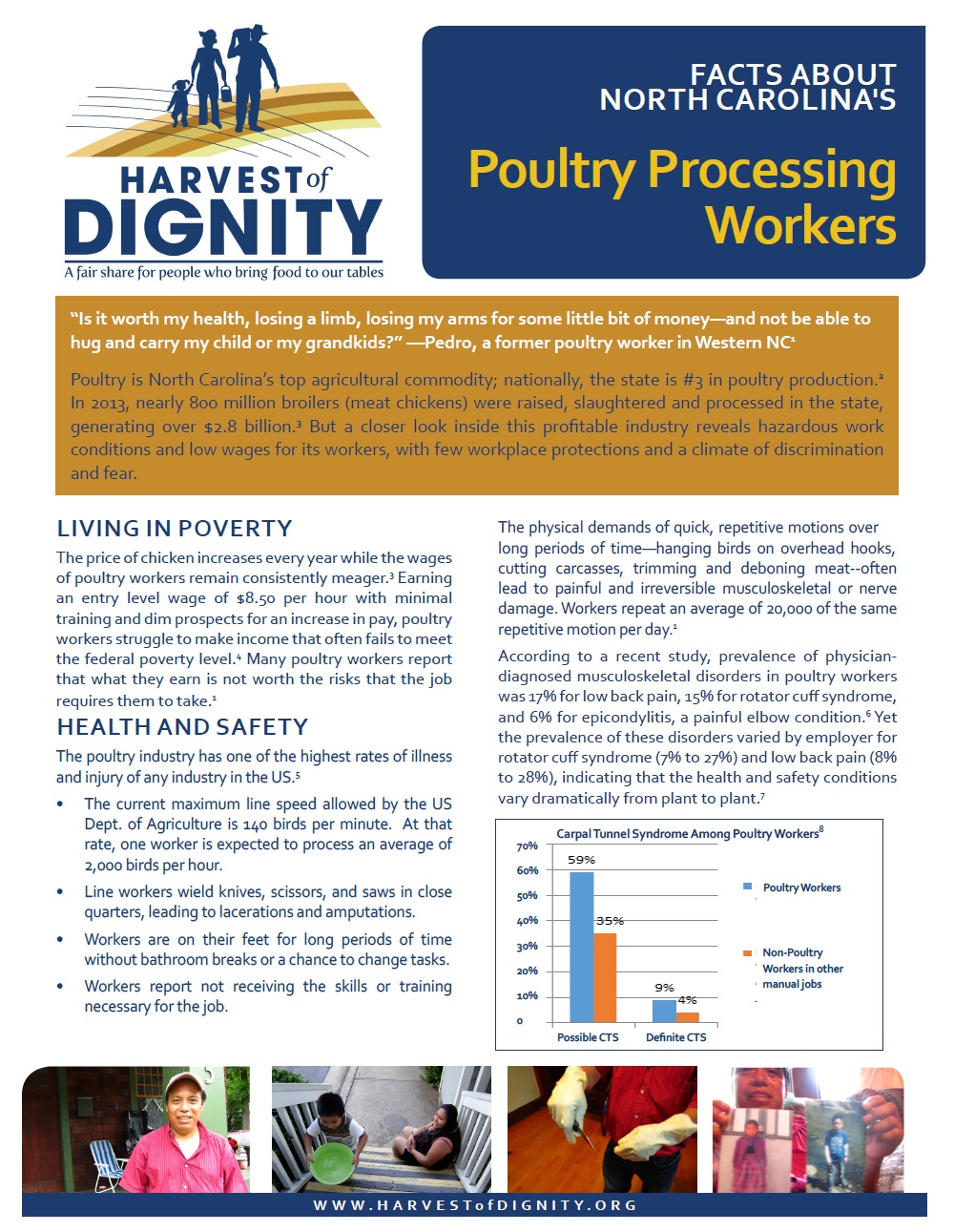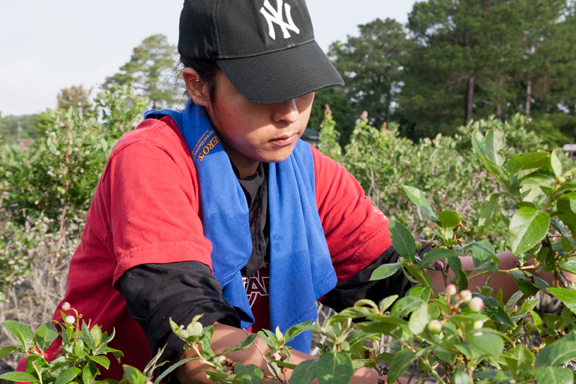Congress is Late to the Party: Blocking Farmworkers' Rights to Pesticide Information
 Thursday, June 23, 2016 at 10:05AM by
Thursday, June 23, 2016 at 10:05AM by  FAN Editor
FAN Editor by Elisa Lazzarino, Toxic Free NC
 Farmworkers and their advocates across the country find themselves caught in the middle of a battle between the agrochemical industry, its allies in Congress, and the EPA. At the heart of this conflict is a rider attached to the EPA’s annual funding bill, which would block the agency’s funding to implement and enforce a controversial clause requiring growers to furnish information about the pesticides they use to farmworkers or third-party representatives of farmworkers. Members of the House Committee on Agriculture claim that their decision to constrain the EPA was prompted by the EPA’s lack of transparency in reviving this rule without explicitly notifying members of Congress. However, the dynamics of the situation might reveal more about the Committee’s relationship with industry more than their irritation at EPA’s conduct.
Farmworkers and their advocates across the country find themselves caught in the middle of a battle between the agrochemical industry, its allies in Congress, and the EPA. At the heart of this conflict is a rider attached to the EPA’s annual funding bill, which would block the agency’s funding to implement and enforce a controversial clause requiring growers to furnish information about the pesticides they use to farmworkers or third-party representatives of farmworkers. Members of the House Committee on Agriculture claim that their decision to constrain the EPA was prompted by the EPA’s lack of transparency in reviving this rule without explicitly notifying members of Congress. However, the dynamics of the situation might reveal more about the Committee’s relationship with industry more than their irritation at EPA’s conduct.
Representatives from the Farm Bureau argue that the requirement places an unfair burden on growers, who might then become targets for activists seeking to use employee disputes to make a political statement, as the clause has no criteria as to who can serve as a third-party representative for farmworkers. Growers and agrochemical producers also fear such a requirement would disadvantage them legally and hurt their profits in the event of a lawsuit from a third-party representative. Growers claim that they would have no objection to requests for pesticide information from the workers themselves, but are strongly opposed to exposing themselves to lawsuits and public criticism. Despite this outcry from powerful voices in the agricultural industry and its supporters in Congress, the EPA chose to continue with the clause after a period of public comment, in which they concluded that the industry brought forth no new information, and support for the measure from those outside industry was overwhelming.
Farmworker advocates, however, argue that growers’ complaints are simply unfounded and ignorant of the legitimate reasons for the provision of third-party representatives for farmworkers, such as the event that a farmworker is ill, injured, or otherwise incapacitated. Given that farmworkers are already greatly disadvantaged in contrast to the immense power that growers and industry hold, particularly their unyielding support from many elected officials and agricultural regulators, farmworker advocates reject growers’ claims of unfairness with respect to the implications of this clause. Advocates point to the numerous legal and social constraints placed on farmworkers.
For example, despite their enormous contribution to the economy and the national food supply, farmworkers have almost none of the labor rights that workers in other industries take for granted, such as protections from employer retaliation against unionizing workers, and the right to collective bargaining. Farmworkers are not guaranteed overtime pay, and despite the high risk of injury and illnesses from exposure to both pesticides and extreme heat, neither do they generally receive workers’ compensation as most growers are exempt from federal requirements. Additionally, only commercial-scale farming operations are required to pay their workers minimum wage, and still many growers only pay their workers according to the quantity of produce they pick, requiring workers to pick several tons of produce to earn the amount that workers in other industries might earn in an hour at indoor, sedentary jobs. Shockingly, child labor laws for agricultural work are also far more lenient than they are in most other industries. Children as young as ten may perform agricultural work around heavy machinery, in intense heat, and in the presence of toxic chemicals with the consent of their parents, where in most other industries the minimum working age is at least fourteen.

In addition to these economic disadvantages, social and cultural circumstances, as well as historical events, created a massive decline in agricultural profits in Mexico and Central America, the origin point of the majority of farmworkers, and made migrant agricultural work in the US one of just few viable options for disenfranchised farmers from this region. Far-reaching trade agreements like NAFTA, which provided generous subsidies to US growers, destabilized the Mexican agricultural market and severely undercut the prices of Mexican producers, driving many of them to come to the US to look for work at much lower pay relative to cost of living. Another crucial distinguishing factor among farmworkers is the fact that large portion that are undocumented are effectively prevented from advocating for themselves through the normal channels used by documented workers of other industries in the US. Fear of retaliation from their employers, which could jeopardize not only their safety and livelihood, but the stability of their families, prevents many farmworkers from speaking out against employer abuses. Finally, perhaps the most pressing reason farmworker advocates support stronger requirements of growers to provide pesticide exposure information to their workers is that this information is often essential to physicians in making an accurate diagnosis of illnesses which are often asymptomatic until years after the initial exposure. In almost any other field, workers exposed to hazardous chemicals would have the freedom to seek necessary information about their illness, but without legal requirements on their employers, farmworkers simply do not have this freedom.

















